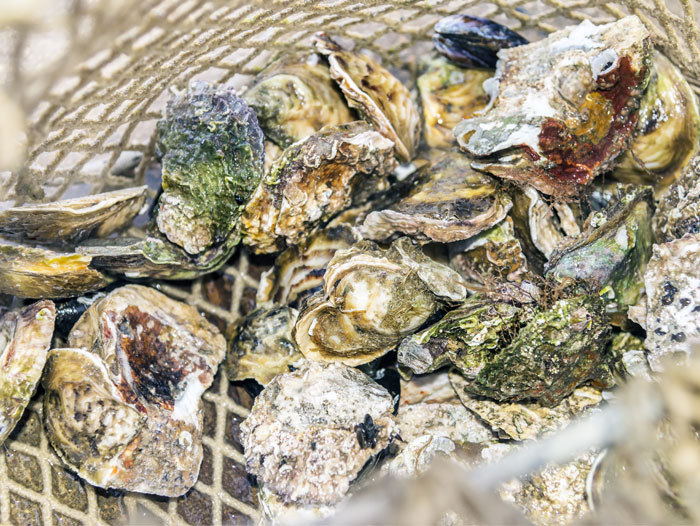Canadian Food Inspection Agency Joint Statement – Additional Detections of MSX in Prince Edward Island
July 26, 2024 | 3 min to read
The Canadian Food Inspection Agency (CFIA) has detected multinuclear sphere X (MSX), caused by Haplosporidium nelsoni, in new locations on Prince Edward Island (PEI). While MSX affects oyster growth and increases mortality, it poses no risk to human health. A Primary Control Zone was established around Bedeque Bay to restrict the disease's spread, with permits required for movement of affected species and equipment. Ongoing testing and quarantine measures are in place as authorities work with industry stakeholders to manage the outbreak.

The Canadian Food Inspection Agency (CFIA) has confirmed the presence of multinuclear sphere X (MSX) caused by Haplosporidium nelsoni in additional locations on Prince Edward Island (PEI), including areas between Lennox Island and Freeland. While MSX prevents oysters from thriving, such as decreased rates of growth and increased oyster mortality, it is important to note that this disease poses no risk to human health, nor does it pose a food safety risk.
On July 20, 2024, a Primary Control Zone (PCZ) was declared for the area in and around Bedeque Bay, PEI to limit the spread of MSX. A PCZ is a defined area where the disease was reported or confirmed, and is declared using authorities contained in the Health of Animals Act. The movement of any designated animals (in this case, bivalves), things (such as boats and equipment), and marine plants that have been in contact with oysters and may be capable of spreading disease can only be moved into, out of, within and through a PCZ with a permit issued by the CFIA. On July 23, three PCZs were also declared in areas where MSX has been confirmed, including an area in Boughton River, an area in Southwest River/New London Bay, and an area between Lennox Island and Black Banks.
Collection, sampling and testing of oysters from other bodies of water in PEI is ongoing. Additional sites outside the ones mentioned above have been placed under quarantine as a temporary measure as part of CFIA’s tracing activities. Further movement controls, such as additional PCZs, may be put in place for these sites if MSX is confirmed to be present.
The CFIA has put in place permits and conditions that enable the low-risk movement of oysters and other bivalves intended for human consumption or retail within or out of the PCZ and other quarantined zones. The CFIA, Fisheries and Oceans Canada (DFO) and the Province of PEI continue to meet with industry members and stakeholders to provide regular updates and address questions and concerns. We understand the detection of MSX and the closures affecting the shellfish industry could have serious impacts on harvesters, other industry members, and Indigenous communities, and greatly appreciate their support, patience and cooperation as we continue to respond to this disease.
Quick Facts
- MSX is not a food safety concern.
- The harvesting of oysters outside of PCZs and quarantine zones remains the same as normal.
- Haplosporidium nelsoni causes multinuclear sphere X (MSX) disease in cultured and wild American oysters, specifically Crassostrea virginica.
- The CFIA’s objectives are to prevent the spread of MSX through controlling certain movements that pose a risk of spreading the disease. These actions are part of the Government of Canada’s One Health approach to prepare for, detect, and manage animal diseases.
- The life cycle of the parasite is not known, but biosecurity measures and monitoring for signs of disease on oyster farms or lease sites, and other activities, can help limit the impacts of disease-causing agents.
- Canada’s National Aquatic Animal Health Program (NAAHP), co-delivered by the Canadian Food Inspection Agency (CFIA) and Fisheries and Oceans Canada (DFO), is responsible for preventing the introduction and/or spread of significant aquatic animal diseases of finfish, molluscs and crustaceans.
